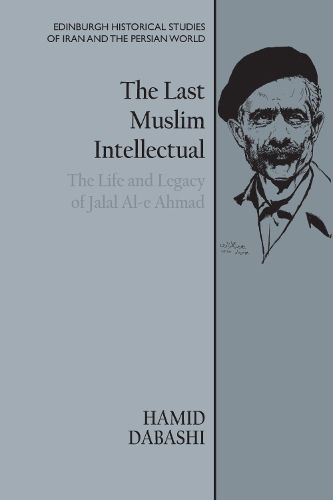Readings Newsletter
Become a Readings Member to make your shopping experience even easier.
Sign in or sign up for free!
You’re not far away from qualifying for FREE standard shipping within Australia
You’ve qualified for FREE standard shipping within Australia
The cart is loading…






This book explores the life and legacy of Jalal Al-e Ahmad (1923 69)
arguably the most prominent Iranian public intellectual of his time
and contends that he was the last Muslim intellectual to have articulated a vision of Muslim worldly cosmopolitanism, before the militant Islamism of the last half a century degenerated into sectarian politics and intellectual alienation from the world at large. Hamid Dabashi places Al-e Ahmad beside other towering critical thinkers of his time, showing how he personified a state of Muslim anticolonial modernity that has now disappeared behind the smokescreen of sectarian politics. This unprecedented engagement with Al-e Ahmad’s life and legacy is a prelude to what Dabashi calls a ‘post-Islamist Liberation Theology’. The Last Muslim Intellectual is about expanding the wide spectrum of anticolonial thinking beyond its established canonicity and adding a critical Muslim thinker to it
an urgent task, if the future of Muslim critical thinking is to be considered in liberated terms beyond the dead-end of its current sectarian predicament.
$9.00 standard shipping within Australia
FREE standard shipping within Australia for orders over $100.00
Express & International shipping calculated at checkout
This book explores the life and legacy of Jalal Al-e Ahmad (1923 69)
arguably the most prominent Iranian public intellectual of his time
and contends that he was the last Muslim intellectual to have articulated a vision of Muslim worldly cosmopolitanism, before the militant Islamism of the last half a century degenerated into sectarian politics and intellectual alienation from the world at large. Hamid Dabashi places Al-e Ahmad beside other towering critical thinkers of his time, showing how he personified a state of Muslim anticolonial modernity that has now disappeared behind the smokescreen of sectarian politics. This unprecedented engagement with Al-e Ahmad’s life and legacy is a prelude to what Dabashi calls a ‘post-Islamist Liberation Theology’. The Last Muslim Intellectual is about expanding the wide spectrum of anticolonial thinking beyond its established canonicity and adding a critical Muslim thinker to it
an urgent task, if the future of Muslim critical thinking is to be considered in liberated terms beyond the dead-end of its current sectarian predicament.